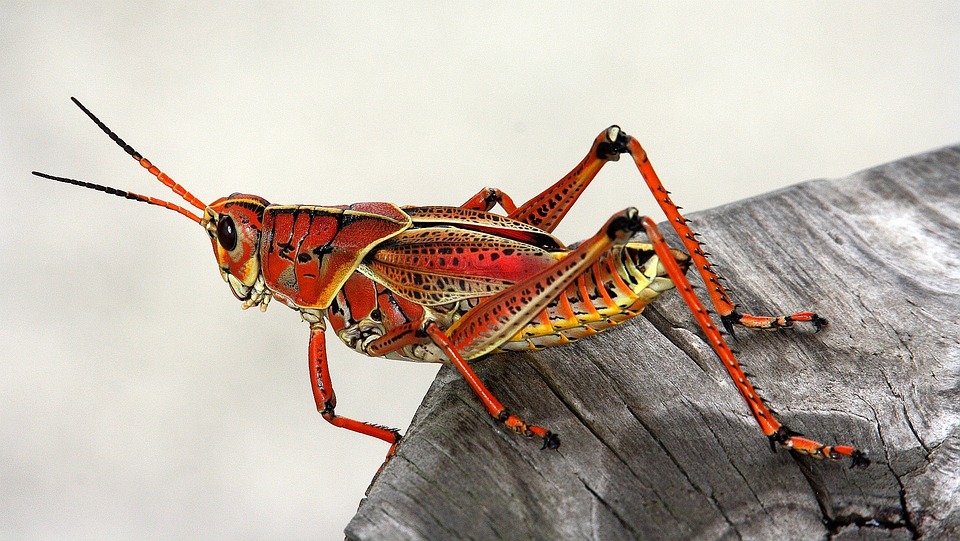Eco-Friendly Protection: The Rise of Natural Insect Repellents
In recent years, as environmental consciousness has surged, consumers are becoming increasingly aware of the impact of their choices on the planet. This shift has influenced everything from dietary habits to fashion, and now, it’s affecting the personal care market—particularly in the realm of insect repellent. Traditional chemical-based insect repellents, often laden with synthetic ingredients like DEET, have raised concerns over their safety and environmental impact. In response, an array of natural insect repellents is gaining traction, offering eco-friendly options that harmonize with both human health and the planet.
The Need for Natural Alternatives
The conventional insect repellents are effective; however, their long-term use has been linked to several health concerns. Research has pointed towards potential skin irritations, neurological impacts, and even reproductive issues tied to chemical repellents. Moreover, the environmental footprint of these products cannot be overlooked; they often contribute to water pollution and can harm beneficial insects such as bees and butterflies.
As awareness of these issues grows, many people are actively seeking out alternatives that are safe, effective, and sustainable. This burgeoning demand has paved the way for natural insect repellents that utilize plant-based ingredients and sustainable sourcing practices.
Key Ingredients in Natural Insect Repellents
Natural insect repellents harness the power of botanical extracts that have been proven to deter pests. Some of the most popular ingredients include:
-
Citronella Oil: Extracted from lemon grass, citronella oil is famous for its mosquito-repelling properties. It’s commonly found in candles, sprays, and lotions and works by masking scents that attract insects.
-
Lavender Oil: Not just a soothing aroma, lavender oil is effective at repelling mosquitoes and moths. Its calming scent is also a plus for humans, providing a pleasant alternative to pungent chemicals.
-
Eucalyptus Oil: The oil of lemon eucalyptus has been recognized for its efficacy in repelling mosquitoes. The Centers for Disease Control and Prevention (CDC) has acknowledged it as an effective alternative to DEET.
-
Peppermint Oil: The high menthol content in peppermint oil not only leaves a cooling sensation on the skin but also repels a variety of insects.
- Neem Oil: Derived from the seeds of the neem tree, this oil has long been used in traditional medicine and agriculture, providing a natural deterrent against numerous pests.
These ingredients not only provide a natural barrier against insects but also often come with additional benefits, such as antimicrobial properties and soothing effects on the skin.
The Growing Market for Natural Repellents
The market for natural insect repellents is expanding rapidly, with numerous brands emerging to meet the demand. Entrepreneurs, environmentalists, and wellness advocates are harnessing advanced formulations to create products that are both effective and eco-friendly. From sprays and lotions to candles and essential oil blends, the variety available means consumers can choose products that suit their preferences while also aligning with their values.
Many companies are focusing on sustainability by using recyclable packaging, sourcing ingredients from ethical suppliers, and prioritizing cruelty-free testing methods. These practices not only appeal to eco-conscious consumers but also contribute to a circular economy, reducing waste and environmental impact.
Personal and Environmental Benefits
Choosing natural insect repellents provides benefits that extend beyond individual consumers. By opting for eco-friendly options, individuals can contribute to the protection of local ecosystems. For instance, natural repellents pose a much lower risk of polluting water sources and harming non-target species, thus supporting biodiversity.
Additionally, the use of non-toxic ingredients can foster healthier living environments. Many natural repellents are suitable for children and pets, making them a safe choice for families who are concerned about the adverse effects of synthetic chemicals on sensitive populations.
Looking Ahead
As the awareness of climate change and environmental issues continues to rise, the trend toward natural insect repellents is likely to accelerate. Insects are evolving alongside their human counterparts, leading to an increased demand for innovative and natural solutions. The advent of technology holds promise for developing new formulations that enhance efficacy while maintaining safety and environmental responsibility.
In conclusion, the rise of natural insect repellents symbolizes a broader shift towards eco-friendly living. By choosing these products, individuals can protect themselves from pests while also advocating for a healthier planet. Embracing natural solutions not only supports sustainability but also enhances our awareness of the interconnectedness of all living things—a fundamental lesson for the future.
